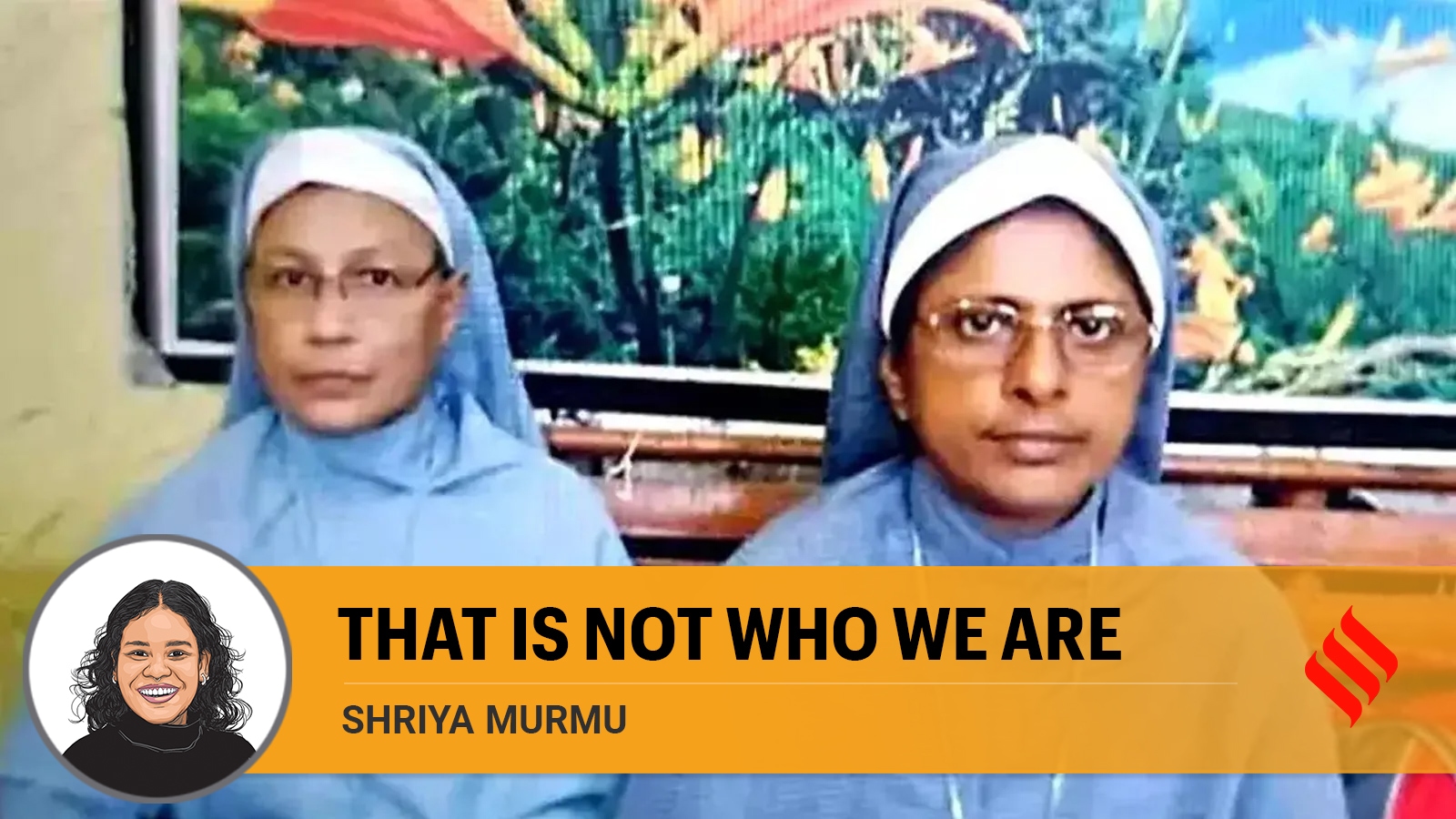Opinion Adivasis don’t need ‘saviours’. We just need people to hear us when we speak for ourselves
Allegations of forced conversion, like in a recent case in Chhattisgarh, portray us as being weak and easily misled. Historically, Adivasis converted to other religions due to spiritual inclination, the desire to move up the social chain, or to gain economic security, often with awareness
 Historically, Adivasis converted to other religions due to spiritual inclination, the desire to move up the social chain, or to gain economic security, often with awareness. (Photo: X/@cpimspeak)
Historically, Adivasis converted to other religions due to spiritual inclination, the desire to move up the social chain, or to gain economic security, often with awareness. (Photo: X/@cpimspeak) “But you just said you are a Christian—how are you an Adivasi then?”
That’s a question I have heard often. For those asking, it may be an “innocent confusion”. For me, it is an unexplainable discomfort at the intersection of identity, faith, and ignorance. Their ignorance.
This ignorance is rooted in a larger issue: The need to view Adivasis through a constructed idea exclusive of what the community wants. It assumes that our religious identity and our Adivasi identity cannot co-exist unless someone else decides it for us.
But the truth is, the faith I choose is independent of my identity as an Adivasi.
Over time, there have been narratives formed about Adivasis and their “appropriate” religion — Adivasis are Hindus, and Adivasis must have been forcefully converted, usually to Christianity.
Both of these narratives have been deeply politicised. As a result, these discourses control how others see us and how the state treats us. They strip us of our agency; our right to make choices about our lives, our culture, and our beliefs.
The right-wing outrage over the nuns, who were arrested in Chhattisgarh for allegedly forcefully converting Adivasi girls, is offensive to me, as a Santhal practicing Christianity. These accusations portray us as being weak and easily misled. It not only attacks the integrity of Christianity, but also forms a narrative that we are unaware of what we believe in, or what we are doing.
But that is not who we are.
In contrast to the mainstream image of Adivasis as “backward” or “primitive,” we are capable of understanding our identities and making our own choices. We are not passive receivers of culture or religion. We examine, we question, and we decide. And most importantly, we choose.
As a Christian, I can confidently say that no one drags you into the faith. The scripture does not teach to force a cross on someone else’s forehead. If someone does that, they are not aware of what their own faith looks like. Christianity, like any religion, when practiced truthfully, begins with choice, consent, and peace.
This diversity of belief within my community is real and practical. I practice Christianity, as do many of my Adivasi friends. Others worship nature and follow ancestral traditions, such as Sarna. Some relatives follow Hinduism. Many do a mix of both.
But our lives — our rituals, our gods, even our Census entries — have been politicised for a while. The consequences may vary in extent and degree, but the greatest loss in all the chaos is the loss of our agency as Adivasis.
Looking back at history, it’s clear Adivasis were not born as Hindus or Christians. As we moved forward with the world, we adapted. We were subjected to different faiths — some of us converted to Christianity, others to Hinduism, aspects of both, and other religions as well. These were willing choices; this is us practicing agency.
What is not acceptable is when others try to define our identity for us, claiming “Adivasis are Hindus” or “Adivasis are being converted forcefully.”
We do not need anyone deciding which religion is best suited for us.
The state, too, has played a role in this confusion. Under Section 3 of the Protection of Civil Rights Act, Adivasis (along with Buddhists, Sikhs, and Jains) are “deemed to be Hindus” unless they explicitly identify otherwise. This may look like an act of integration to protect us from discrimination, but it has serious effects.
Sociologist and author Virginius Xaxa, in his article “Politics of Language, Religion and Identity: Tribes in India”, states that before Independence, tribal communities were often listed in the Census as animists or as practising tribal religions. This, however, changed after Independence — they were automatically counted as Hindus if they didn’t identify with any major religion.
Historically, Adivasis converted to other religions due to spiritual inclination, the desire to move up the social chain, or to gain economic security, often with awareness.
But the administration, through bureaucratic categorisation, took away the agency and freedom from Adivasis to choose their religion.
Xaxa also highlights the paradox of the system: On the one hand, it has provisions to protect and promote tribal culture. On the other, it systemically absorbs Adivasis into the larger mainstream society, thus stifling their right to practice their choices.
The problem isn’t our diversity or our belief systems.
The problem is people — activists, politicians, government officials — trying to be our saviours, trying to consolidate us into a single category.
We do not need saviours. We self-govern. We fight authority when needed, protect our land, defend our communities, and build systems that balance rural and urban life.
We have been vocal. We are speaking. All we need is to be heard.
shriya.murmu@expressindia.com



